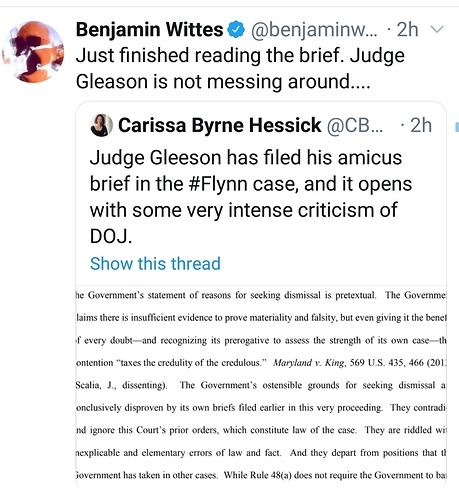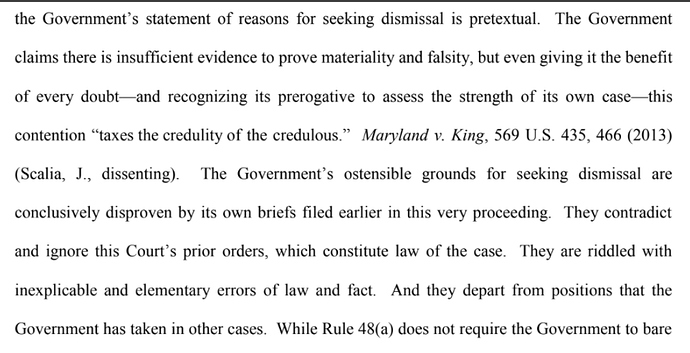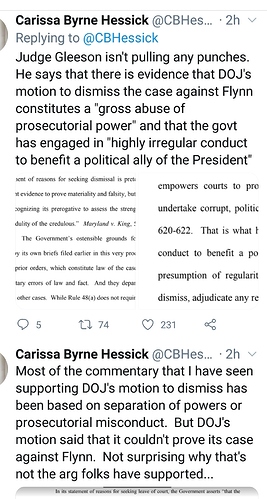Questions on Flynn and his conversations with Russian Ambassador Kislyak - I am just following the leads of various journalists who are culling out certain aspects to the significance of Flynn’s early calls to Kislyak.
While Flynn is up for a possible dropping of the case, per Barr’s DOJ, there is a bunch of reveals in the notes, which others are talking about tonight.
Remember when Judge Sullivan said he’d delay on Flynn’s sentencing because he said there could be treason involved. This is a big issue obviously. Did Flynn parlay his position within the upcoming T administration to help influence a next-level Russian alliance which has been kept under wraps for a long time. #NoNotesT’sMtgsWithPutin.
Just going to list a bunch of articles which is addressing the Flynn issue tonight, because the USA is majorly occupied with murderous police activity in MN, a pandemic and a truly corrupt and obfuscating Administration who keeps hiding and rearranging the facts on what kinds of connections T 'n Co has with the Russians and other ‘helpers.’
Suggests the Middle East was at the core of Flynn’s calls…let’s help Russian alliances, ie Iran, Syria oh, and yeah, Ukraine.
When Donald Trump’s national security adviser-designate made his fateful phone calls with the Russian ambassador, the conversations that set in motion his downfall had a goal behind them. Drawing closer to the rival power that interfered in the 2016 election didn’t occur for its own sake, transcripts declassified on Friday show, but to create a new Mideast partnership against what retired Lt. Gen. Mike Flynn saw as “radical Islam.”
“You know that the strategic goal is stability in the Middle East,” the transcripts show Flynn pressing upon Sergey Kislyak on Dec. 23, 2016. “We will not achieve stability in the Middle East without working with each other against this radical Islamist crowd. Period. I am very adamant about that.”
Flynn would later plead guilty – and, later still, seek to reverse his plea – for lying to the FBI in January 2017 about the discussions of U.S. sanctions on Russia that he had with Kislyak on that day and others. But the calls, declassified by former acting Director of National Intelligence Richard Grenell and released under the auspices of confirmed successor John Ratcliffe, confirm an overlooked aspect of the Trump team’s early outreach to Moscow.
The reason why Flynn was keen for Moscow to tamp down its response to the Obama administration’s final round of sanctions was to advance a longstanding desire on Flynn’s behalf to unite the two nations against a dark vision of Islam that Flynn had come to hold. First on the agenda would be to come to terms on Syria, where both nations had deployed their militaries. It was something Flynn wanted the Pentagon to explore – and something that would lead to an encounter in the Seychelles between an infamous mercenary and the head of a sanctioned Russian fund.
Flynn has never particularly hid that he saw Russia as a means to the end of confronting what he variously refers to as “radical Islam,” “radical Islamist terror,” and “radical Islamic terror.” This was Flynn’s takeaway after his post-9/11 tenure as the intelligence chief for the Joint Special Operations Command, which made him an instrumental figure in the war on terror. To many of Flynn’s military and intelligence contemporaries, that is a hysterical and dangerous view of one of the world’s major religions.
At the Republican National Convention in 2016, he told Dana Priest of the Washington Post, “That’s really where I’m at with Russia. We have a problem with radical Islamism and I actually think that we could work together with them against this enemy. They have a worse problem than we do.” He would later put it in harsher terms, comparing Islam to a “malignant cancer” and calling it a “political ideology” that “hides behind this notion of being a religion.”
On the phone with Flynn in December 2016 – something surreptitiously intercepted by the FBI as a matter of course for the Russian ambassador’s conversations – Kislyak saw the leverage Flynn’s perspective provided.
Talking about Obama’s sanctions, which included the expulsion of Russian diplomatic and intelligence personnel, Kislyak told Flynn that the sanctions seemed to indicate the U.S. was unwilling to work together against “terrorist threats.” Kislyak added that he viewed Obama sanctions as aimed “not only against Russia, but also against the president elect.”
Flynn, urging Kislyak to convince Vladimir Putin to take a restrained approach to the sanctions, reiterated: “We definitely have a common enemy. You have a problem with it. We have a problem with it in this country and we definitely have a problem with it in the Middle East.”
But Flynn’s vision of the U.S. and Russia as natural allies against “Islam” overlooked much. Russia was aligned with Iran, to which it had sold powerful anti-aircraft defenses, while Flynn’s brief tenure famously put Iran “on notice” that the Trump administration would be aggressive against Tehran. Nor were the Russians concerned about ISIS in Syria. Their concerns were the survival of their client, Bashar Assad, and the transcripts indicate that Kislyak saw in Flynn’s outreach an opportunity to get Washington to acquiesce to Assad’s continued rule.
Their plan came to a head in a Dec. 29, 2016 call. According to the newly declassified transcripts, Kislyak tells Flynn that although Russia wants to work with the new administration on coordinating in the Middle East, it would stand back to wait and see what the Trump team proposed as policy.
“We had … significant reservations about the idea of adopting now the principles for the Middle East … that our American colleagues are pushing for. So we are not going to support it to - in the quartet, or in the Security Council. And we have conveyed to our American colleagues,” Kislyak tells Flynn on the call. “So in the spirit of full transparency I was asked to inform you as well.”
Some more comments from NYT’s article on Flynn’s calls. See [The Impeachment of President Donald J. Trump]
To be continued…
Adding the views of Marcy Wheeler of Emptywheel.net, who always seem to get to the very core of what is significant…and the details which are damning.
Will leave this here for you to read…and also read their comments section…multi-layer chess.
2 articles from today.
#1
John Ratcliffe has released the transcripts of Flynn’s calls with Sergey Kislyak. They’re utterly damning. I’m sure I’ll be writing about them for some time, but this is the key bit. Flynn raised sanctions himself — even interrupted Kislyak to do so.
And he pitched sanctions against the Russians not just for tampering in our election, but also for abusing our diplomats in Russia, as an attack on Trump.
KISL YAK: Is by security video. Secure video line.
FLYNN: Yeah. Yeah, yeah. I understand. Okay, um, okay. Listen, uh, a couple of things. Number one, what I would ask you guys to do – and make sure you, make sure that you convey this, okay? – do not, do not uh, allow this administration to box us in, right now, okay? Um –
KISLYAK: We have conveyed it. And –
FLYNN: Yeah.
KISL YAK: It’s, uh, ifs uh, very very specifically and transparently, openly.
FLYNN: So, you know, depending on, depending on what uh, actions they take over this current issue of the cyber stuff, you know, where they’re looking like they’re gonna, they’re gonna dismiss some number of Russians out of the country, I understand all that and I understand that~that, you know, the information that they have and all that, but what I would ask Russia to do is to not – is – is – if anything – because I know you have to have some sort of action – to, to only make it reciprocal. Make it reciprocal. Don’t – don’t make it- don’t go any further than you have to. Because I don’t want us to get into something that has to escalate, on a, you know, on a tit for tat. You follow me, Ambassador?
KISLYAK: I understand what you’re saying~ but you know, you might appreciate the sentiments that are raging now in Moscow.
Then, when Kislyak calls back to tell Flynn that they didn’t respond because of his ask, Kislyak emphasizes that, asserting that the sanctions were targeted at Trump as well as Russia (note, it’s possible Russia intercepted the calls between Trump Transition officials where they said just this, because they weren’t using secure lines precisely to avoid detection by the US government).
KIS LY AK: And I just wanted to tel I you that we found that these actions have targeted not only against Russia, but also against the president elect.
FLYNN: yeah, yeah
KISL YAK: and and with all our rights to responds we have decided not to act now because, its because people are dissatisfied with the lost of elections and, and its very deplorable. So, so I just wanted to let you know that our conversation was taken with weight. And also …
Thus, from the very start of this Administration, Flynn willingly set up the relationship with Russia such that Russia and Trump’s Administration were allied against Democrats — and anyone else who believed it was wrong for Russia to tamper in our election.
#2
As I noted, John Ratcliffe has released the transcripts of at least some of the Flynn-Kislyak calls (Ric Grenell said that he didn’t have all transcripts, and there are certainly other transcripts, at least setting up the meeting at which Jared Kushner asked for a back channel). As I also noted, from the very beginning, Kislyak set up the calls with Flynn such that Russian and Trump were unified against the Democrats (though the common enemy referenced in the calls was ISIS).
But that’s not the most damning part of the transcripts.
As I have repeatedly noted, the Mueller Report is very coy about whether Mueller obtained evidence that Flynn spoke directly with Trump about his calls with Kislyak, going so far as to withhold details of the timeline of events on December 29 (Mueller cites Flynn’s call records, but we know from the Stone trial that he also got Trump’s call records, at least for the campaign period). According to the narrative Mueller laid out, the first time that Flynn claimed to remember discussing the conversation with Trump was on January 3, 2017.
On January 3, 2017, Flynn saw the President-Elect in person and thought they discussed the Russian reaction to the sanctions, but Flynn did not have a specific recollection of telling the President-Elect about the substance of his calls with Kislyak. 102
Flynn even claimed that he and Trump didn’t speak about the substance of the calls until February 6.
The week of February 6, Flynn had a one-on-one conversation with the President in the Oval Office about the negative media coverage of his contacts with Kislyak. I93 Flynn recalled that the President was upset and asked him for information on the conversations. 194 Flynn listed the specific dates on which he remembered speaking with Kislyak, but the President corrected one of the dates he listed. I95 The President asked Flynn what he and Kislyak discussed and Flynn responded that he might have talked about sanctions.I96
Flynn’s claimed uncertainty about whether he had discussed the sanctions call with Trump was a key part of Mueller’s analysis of whether Trump fired Jim Comey because Flynn had derogatory information on him.
As part of our investigation, we examined whether the President had a personal stake in the outcome of an investigation into Flynn-for example, whether the President was aware of Flynn’s communications with Kislyak close in time to when they occurred, such that the President knew that Flynn had lied to senior White House officials and that those lies had been passed on to the public. Some evidence suggests that the President knew about the existence and content of Flynn’s calls when they occurred, but the evidence is inconclusive and could not be relied upon to establish the President’s knowledge . In advance of Flynn’s initial call with Kislyak, the President attended a meeting where the sanctions were discussed and an advisor may have mentioned that Flynn was scheduled to talk to Kislyak. Flynn told McFarland about the substance of his calls with Kislyak and said they may have made a difference in Russia’s response, and Flynn recalled talking to Bannon in early January 2017 about how they had successfully “stopped the train on Russia’s response” to the sanctions. It would have been reasonable for Flynn to have wanted the President to know of his communications with Kislyak because Kislyak told Flynn his request had been received at the highest levels in Russia and that Russia had chosen not to retaliate in response to the request, and the President was pleased by the Russian response, calling it a ” [g]reat move.” And the President never said publicly or internally that Flynn had lied to him about the calls with Kislyak.
But McFarland did not recall providing the President-Elect with Flynn’s read-out of his calls with Kislyak, and Flynn does not have a specific recollection of telling the President-Elect directly about the calls . Bannon also said he did not recall hearing about the calls from Flynn. And in February 2017, the President asked Flynn what was discussed on the calls and whether he had lied to the Vice President, suggesting that he did not already know. Our investigation accordingly did not produce evidence that established that the President knew about Flynn’s discussions of sanctions before the Department of Justice notified the White House of those discussions in late January 2017.
But the transcript of Flynn’s December 31, 2016 call makes it clear that Mueller had proof that Flynn had talked with Trump about the Kislyak call, because Flynn told Kislyak that the “boss is aware” of the secure video conference that Kislyak wanted to set up immediately after Trump was inaugurated.
FLYNN: and, you know, we are not going to agree on everything, you know that, but, but I think that we have a lot of things in common. A lot. And we have to figure out how, how to achieve those things, you know and, and be smart about it and, uh, uh, keep the temperature down globally, as well as not just, you know, here, here in the United States and also over in, in Russia.
KISLYAK: yeah.
FLYNN: But globally l want to keep the temperature down and we can do this ifwe are smart about it.
KISLYAK: You’re absolutely right.
FLYNN: I haven’t gotten, I haven’t gotten a, uh, confirmation on the, on the, uh, secure VTC yet, but the, but the boss is aware and so please convey that. [my emphasis]
Flynn might claim that he only told Trump about the video conference and not sanctions (which wouldn’t be remotely credible, given that Flynn was the one who raised the sanctions, not Kislyak). He might claim that any conveyance of the details of the call went to Trump second-hand, perhaps through KT McFarland.
But whatever excuse Flynn would offer (remember, he has been asking for these transcripts since August, so it’s unclear how much of their content John Eisenberg, Reince Priebus, and Mike Pence shared with him in real time), his assurances to Kislyak, offered on December 31, that Trump knew of the request Kislyak had made on the December 29 call makes it quite clear that Flynn knew Trump had learned of the substance of the call via some means within 48 hours of that call.
And then told Mueller he had no idea whether he had shared that information.
Flynn urged Russian ambassador to take ‘reciprocal’ actions, transcripts show
Incoming national security adviser Michael Flynn told Russia’s ambassador to Washington in late 2016 to take “reciprocal” actions in response to Obama administration sanctions for election interference, rather than escalating the situation into a “tit for tat.”
“You might appreciate the sentiments that are raging in Moscow,” the ambassador, Sergey Kislyak, replied to Flynn’s request on the Dec, 29, 2016 call.
“I know, I - believe me, I do appreciate it, I very much appreciate it,” Flynn responded. “But I really don’t want us to get into a situation where we’re going, you know, where we do this and then you do something bigger, and then you know, everybody’s got to go back and forth and everybody’s got to be the tough guy here, you know?”
The next day, the president-elect praised his Russian counterpart for declining to retaliate, “Great move on delay (by V. Putin) - I always knew he was very smart!” he tweeted.
When Flynn and Kislyak followed up on Dec. 31, 2016, Kislyak emphasized that Russian President Vladimir Putin opted not to escalate the sanctions battle because of his talk with Flynn — despite “raging” feelings in Moscow. And Kisylak argued that the Obama administration sanctions were aimed at damaging the incoming Trump administration just as much as they were the Kremlin.
“I just wanted to tell you that we found that these actions have targeted not only against Russia, but also against the president elect,” Kisylak said.
The exchanges are at the heart of the controversy over the FBI’s investigation of Russian interference in the 2016 election and Trump campaign aides’ contacts with Russian officials throughout. They were released Friday as part of a batch of declassified transcripts to Congress and obtained by POLITICO, detailing conversations between Flynn, the retired lieutenant general, and Kisylak in the weeks before President Donald Trump took office.
The documents at one point show Flynn engaged in a prolonged discussion with Kislyak over the sanctions the outgoing administration had slapped on Russia hours earlier for its campaign meddling, an apparent effort to convince Moscow not to retaliate and to embrace a new relationship with the incoming Trump team. They show no sign that he condemned Russia’s interference in the 2016 election to Kislyak.
Flynn’s conversations with the ambassador were a key concern to FBI investigators probing Russian interference in the 2016 election and the contacts between Russia and figures in Trump’s orbit during that period. Flynn later pleaded guilty to lying to the FBI about the details of those contacts and spent more than a year cooperating with special counsel Robert Mueller, though he’s since moved to withdraw his plea.
The new materials involve calls on January 5, 2016; December 22, 2016; December 23, 2016; and a voicemail and subsequent phone call on December 29, 2016.
DOCUMENT
One transcript appears to detail a conversation between Flynn and Kislyak about a U.N. Security Council vote on condemning Israeli settlement moves in the West Bank. “[Y]ou know that the strategic goal is stability in the Middle East,” Flynn told Kislyak. “That’s the strategic goal. And, and, you know, between you and I, and you know this, and we know this, you know between Moscow and Washington. We will not achieve stability in the Middle East without working with each other against this radical Islamist crowd. Period.”
Kislyak replied that Russia would vote to condemn the settlements, but said Russia would “try to help ah… to give additional time for the conversation on this issue.”
“[W]e will try to help to postpone the vote and to allow for consultations,” he added.
“OK, OK, that’s good,” Flynn replied. “That’s great ambassador. That’s all we can ask for it at this point and time.”
During the Dec. 29 call with Kislyak, the pair discussed sanctions at length, despite Flynn’s denials later.
“[T]he idea is, be — if you — if you have to do something, do something on a reciprocal basis, meaning you know, on a sort of an even basis,” Flynn said later in the call. “Then that, then that is a good message and we’ll understand that message. And, and then, we know that we’re not going to escalate this thing, where we — where because if we put out — if we send out 30 guys and you send out 60, you know, or you shut down every Embassy, I mean we have to get this to a — let’s, let’s keep this at a level that uh is, is even-keeled, okay?”
DOCUMENT
The transcripts also predate the 2016 election, briefly describing a call Flynn made to Kislyak on January 5, 2016, to express his condolences to Kislyak about the death of Igor Sergun. Sergun was the director of Russia’s military intelligence service, the GRU.
Richard Grenell, who was acting director of national intelligence until Rep. John Ratcliffe (R-Texas) was sworn into the role on Monday, declassified the call transcripts before leaving the administration but left it to Ratcliffe to release them. The transcripts are of calls between Flynn––who was then a member of the Trump transition team, and the incoming national security advisor––and Kislyak, Russia’s envoy to the U.S. at the time.
Before he left office, Grenell emphasized that he didn’t have access to all the call transcripts, which were products of the FBI, but had moved to declassify the ones he had received.
“I declassified the ones we had. There’s a process - they are coming,” Grenell said Thursday on Twitter.
The move is the latest in a series of Flynn-related declassifications from ODNI. Earlier this month, the agency declassified a list of U.S. officials who made so-called “unmasking” requests that revealed Flynn’s name. Biden, who was vice president at the time, made one of the requests. The National Security Agency (NSA) produced the list, and noted that all the unmasking requests came from people with the authority to make them and were handled according to legal protocols. Despite that, the Trump administration cited the news to claim the Obama administration illegally spied on the campaign. When asked at a press conference what law Biden had broken, Trump declined to say.
ODNI also declassified the full text of an email then-national security adviser Susan Rice sent to herself and to an aide memorializing an Oval Office conversation about Flynn and Kislyak. According to Rice’s email, then-FBI Director James Comey told Obama that he was worried about sharing classified material with Flynn, given Flynn’s numerous conversations with Kislyak. Comey added that he had no evidence the incoming Trump advisor had shared classified material with the Russian diplomat. Rice had called for the full declassification of the email, and since called for declassification of the call transcripts.
Obama, according to the email, told Comey to conduct the investigation “by the book.” But Trump has seized on the episode to allege, without evidence, that Obama committed an unspecific crime against his incoming administration.
Trump was asked about the Flynn-Kislyak calls in detailed written questions from Mueller’s team but ignored them, refusing to answer when he learned that Flynn had discussions with Russia’s ambassador to the United States or whether he was ever informed that the calls were the reason Russia didn’t retaliate against the Obama administration sanctions.
Trump has used the Flynn case to fire up his allies in his 2020 reelection campaign, fundraising off Obama and Biden’s involvement.
The FBI opened a counterintelligence operation into several Trump campaign aides in the summer of 2016. Flynn was eyed for his visit to Moscow in 2015, part of a Russian-funded dinner at which he was seated next to President Vladimir Putin.
But by early 2017, after Trump had designated him as his national security adviser, the FBI was prepare to close its case against Flynn, according to recently disclosed documents. That changed when top FBI brass learned of Flynn’s calls with Kislyak, which came just as the outgoing Obama administration imposed sanctions on Russian officials for their interference in the election.
Leaked details of the calls suggested that Flynn urged the Russian government not to retaliate against the Obama sanctions, avoiding a tit-for-tat ahead of the inauguration of Trump, who had promised warmer relations with Russia. But Flynn denied that he discussed sanctions with Kislyak at all.
The existence of the calls set off a debate between the Obama Justice Department — which wanted to inform the incoming Trump administration about the calls — and the FBI, which wanted to keep them secret during its counterintelligence investigation. The debate reached a fever pitch when incoming vice president Mike Pence repeated Flynn’s incorrect statement during a TV interview, and flared again after the inauguration, when Press Secretary Sean Spicer reiterated them.
The Justice Department ultimately informed the White House about the calls, but not before the FBI sent two agents to interview Flynn in the West Wing, where he continued to deny discussing sanctions with Kislyak.
Though Flynn maintained for a year and a half that he was guilty of lying to the FBI, he reversed course last year, hiring a new legal team and alleging that his guilty plea was coerced by FBI officials seeking to perpetuate their ongoing Russia investigation.
He moved earlier this year to withdraw his guilty plea, and last month, the Justice Department moved to drop the case against him, following a review initiated by Attorney General William Barr. Some FBI and DOJ officials involved in the matter accused Barr of twisting their words to justify dropping the case.
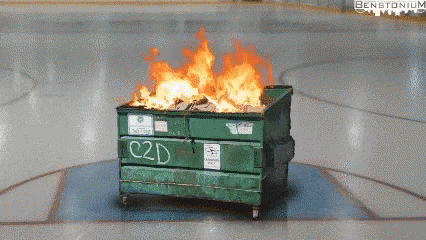
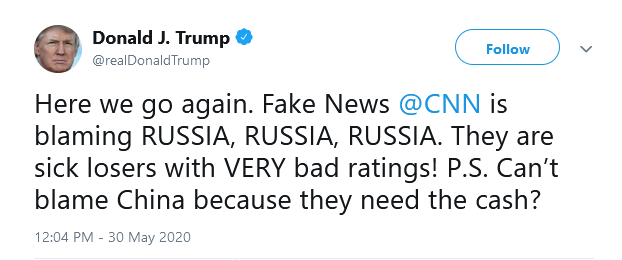
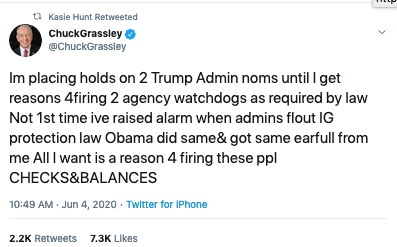
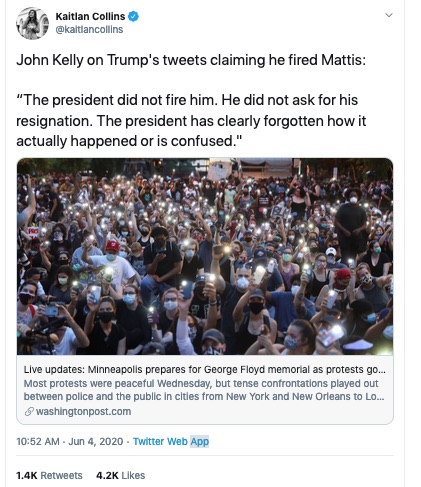
 abuse of power. says the reviewing Judge.
abuse of power. says the reviewing Judge.